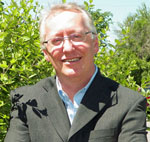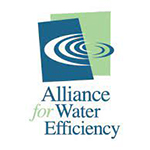 |
||||||||||||||||||||||||||
| Subscribe | Past Issues | www.cwwa.ca | Water Source Magazine | ||||||||||||||||||||||||||
|
CWWA News
If you missed it, you missed a great one! The Window on Ottawa is our signature event, like no other in our industry, as it brings together federal project leaders and policy makers with our membership of water leaders. Through this annual forum, we can engage the federal departments and agencies on their current and future projects. This year was no different, even as a virtual event, as over 200 delegates heard from a dozen senior federal policy makers.
Federal Initiatives
On May 31, 2021, the government announced that it is providing close to $7 million to support seven science-based research projects. These projects aim to close gaps in our knowledge and improve understanding of the threats posed by plastic pollution and to help us move toward a cleaner and healthier world. The Government of Canada announced that it will invest up to $54.9 million in 58 community-based climate action initiatives from across Canada. The projects, funded by the Climate Action and Awareness Fund, will build capacity and awareness for local action on climate change. The maximum acceptable concentration (MAC) for metribuzin in drinking water is 0.08 mg/L (80 μg/L). Metribuzin is a pre- and post-emergent herbicide used to control broadleaf weeds and grasses in agriculture. It is released into the environment as surface runoff following agricultural spraying (particularly within two weeks of soil application), as tile drain effluent, from accidental discharge or as spray drift. It has the potential to leach into groundwater or move into surface water. Low levels of metribuzin have been found in source and treated drinking water in a few Canadian provinces during targeted monitoring programs in agricultural areas where metribuzin is applied. Of the available studies in humans, there was no relationship between exposure to metribuzin and the incidence of cancer or Parkinson's disease. Member News
As we continue to see very dry conditions persist across Canada, CWWA wanted to remind members of the excellent resources available from the Alliance for Water Efficiency including drought management resources and water conservation programs, planning and evaluation.
It is possible to see the presence and quantity of SARS-CoV-2 virus circulating in the population in a given territory by sampling and analyzing wastewater. This analysis gives us information on the evolution of the virus from 2 to 7 days before the individual tests: in Quebec City, the rise of the virus during the 3rd wave was seen in the wastewater 5 days before the clinic screening. This wastewater monitoring system makes it possible to quickly see the effectiveness of new sanitary measures. CentrEau is leading the CentrEau-COVID pilot project, a $1.7M project (financed by the Fonds de recherche du Québec, among others) that aims to implement a monitoring system in Montreal, Quebec City and Laval, as well as a few municipalities in the Bas-Saint-Laurent/Gaspésie and Mauricie/Centre-du-Québec regions. Libéo has developed an interactive tool that allows you to see, week after week, region after region, the evolution of the virus in the population through its wastewater. Water Canada celebrated the winners of the 2021 Water’s Next Awards on June 10, 2021 as part of the 12th annual Canadian Water Summit. Hosted by Actual Media’s Content Director Corinne Lynds, the presentation of the 2021 Water’s Next Awards recognized individuals, projects, and technologies that have made significant contributions to the water industry in Canada and beyond.
Whether you are a student, a young professional, or an expert in your field, continuing to learn and stay up to date on cutting edge technologies is an important aspect of every industry, and especially the water sector. OWC Academy is a learning series that was developed to showcase and share real-world industry knowledge and perspectives on water technologies and related topics. Sessions are designed and presented by industry experts and practitioners on topics ranging from drinking water and wastewater treatment technologies to process modelling. OWC Academy can provide value and practical learning to individuals from any area of the water sector and any level of expertise.
Turning Tides
Three members of CWWA's Security and Emergency Management Committee have retired recently following long and prestigious careers in water infrastructure protection. Elizabeth Clark, Pat Bellemare and Rod Tulett were actively involved for many years in the activities organized by CWWA's Security Committee and Public Safety Canada. We thank them for their support and contribution and wish them a happy retirement. Provincial News
The Governments of Canada and Ontario announced they have signed a new Canada-Ontario Agreement on Great Lakes Water Quality and Ecosystem Health, setting out specific actions each government will take to protect and restore the Great Lakes, such as preventing toxic and nuisance algae, improving wastewater and stormwater management, reducing plastic pollution and excess road salt, restoring native species and habitats, and increasing resilience to climate change. Environmental Science and Engineering Critics of a new Private Member’s Bill say that its attempt to revert the law to its previous status and once again criminalize the dumping of raw sewage into fish-bearing waters will only erase transparency from companies who fear that data could be used against them as evidence. Note: CWWA covered the bill and our response to it in last months issue of the Bulletin. Snippings & Clippings
Water Canada Stormwater user fees have provided many Canadian municipalities with stable, dedicated funding for critical stormwater services, while stormwater credit programs can lower stormwater charges and potentially incentivize private properties owners to implement stormwater best management practices (BMP). However, in the quest to achieve widespread BMP uptake, municipalities are increasingly looking beyond a standard credit program to a more nuanced and diverse approach to incentivizing stormwater management efforts. NBC News On Jan. 15, a hacker tried to poison a water treatment plant that served parts of the San Francisco Bay Area. It didn't seem hard. The hacker had the username and password for a former employee's TeamViewer account, a popular program that lets users remotely control their computers, according to a private report compiled by the Northern California Regional Intelligence Center in February and seen by NBC News. Bloomberg Law When the Los Angeles Department of Water and Power was hacked in 2018, it took a mere six hours. Early this year, an intruder lurked in hundreds of computers related to water systems across the U.S. In Portland, Oregon, burglars installed malicious computers onto a grid providing power to a chunk of the Northwest. Denver Post Tens of thousands of Denver residents drink, bathe in and cook with water that comes in through lead service lines. Denver Water crews are moving as fast as a public utility that serves 1.5 million homes can to replace the lead pipes and solder before the soft, toxic metal leeches too much and gradually poisons the people inside. Water Canada Millions of cubic metres of treated drinking water are being pumped into the ground every year across Ontario municipalities as a result of broken and leaky pipes, according to a new study released by the Residential and Civil Construction Alliance of Ontario (RCCAO). CNN A crippling drought in the western US is dropping the water level at Lake Mead and the Hoover Dam to a historically low level, putting pressure on the region's drinking water supply and the dam's electric capacity. The Conversation When I was a teenager I owned a large dog, a German Shepherd. It was my responsibility to pick up his poo and put it in the bin. I would never have thought to flush it down the toilet. So, after a quick internet search, I was surprised to find many people do actually flush cat poo down the toilet. I soon discovered training your cat to use a toilet is a hot topic for cat owners, especially for urban cats that live in home units and lack a backyard. Water Canada Legionella was discovered after an outbreak in 1976 among people who went to a Philadelphia convention of the American Legion. Those who were affected suffered from a type of pneumonia (lung infection) that eventually became known as Legionnaires’ disease. CBC News Halifax Water is looking to beef up its cybersecurity to address deficiencies that were identified in an assessment four years ago. The utility is considered critical infrastructure because it provides drinking water, storm and wastewater services to more than 300,000 people. The Hill With the current drought already impacting over 90 million people in the U.S. and with water scarcity likely to get worse because of population growth and climate change, there is an urgent need to invest in water efficiency. This threat goes well beyond the arid west. Thirty-three states have been hit by drought since 2000, including ones located in the Great Plains, Midwest, Southeast and Mid-Atlantic regions. And scientists warn that most of the country is on pace to experience water shortages if we don’t manage water better. |
||||||||||||||||||||||||||






